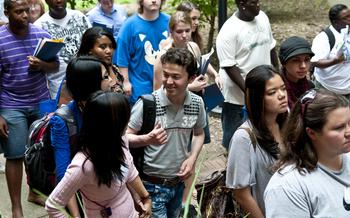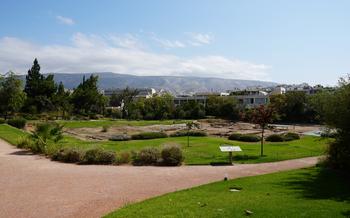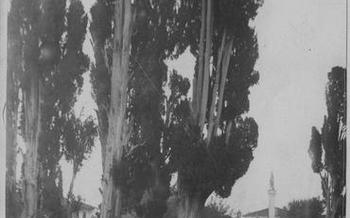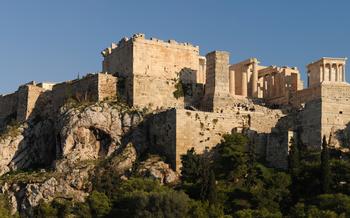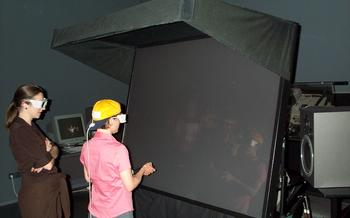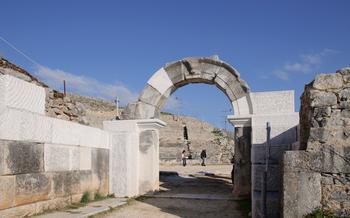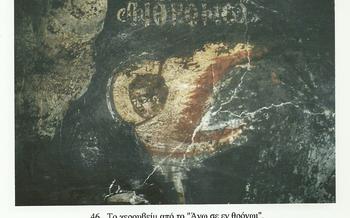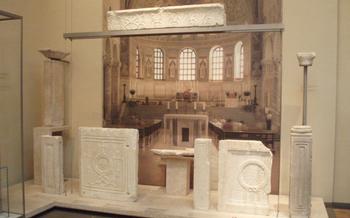
Aristotle's School Historical Site
- The Historical Significance of Veria
- Aristotle's School Historical Site
- Aristotle's School Historical Site: A Place of Learning and Debate
- Exploring the Ancient Gymnasium
- The Library of Aristotle
- Aristotle's Legacy in Veria
- Veria Archaeological Museum
- Byzantine Churches
- A Day in the Life of an Ancient Greek Student
- The Influence of Aristotle's School on Western Thought
- Aristotle and the Art of Rhetoric
- Interactive Exhibitions and Educational Programs
- Insider Tip:
The Historical Significance of Veria
Veria, a city nestled in the heart of Macedonia, Greece, boasts a rich historical and cultural legacy that dates back to ancient times. In the 4th century BC, Veria emerged as a prominent center of education and philosophy, thanks to the establishment of Aristotle's school, the Lyceum. The city's strategic location along trade routes and its vibrant intellectual atmosphere attracted students and scholars from across the Hellenic world. Aristotle, one of the most influential philosophers of all time, chose Veria as the site of his school due to its conducive environment for learning and contemplation. His teachings and writings in the fields of logic, ethics, politics, and natural philosophy had a profound impact on Western thought and laid the foundation for many modern philosophical and scientific disciplines. Veria's connection to Aristotle and his legacy continues to draw visitors and scholars alike, eager to explore the birthplace of groundbreaking ideas that continue to shape our understanding of the world.
Aristotle's School Historical Site
Aristotle's School Historical Site: A Place of Learning and Debate
Aristotle's School Historical Site, located in the picturesque city of Veria, Greece, offers a glimpse into the ancient world of philosophy and education. The site, which dates back to the 4th century BC, is believed to be the location where Aristotle, one of the most influential philosophers of all time, established his renowned school. Visitors to the site can explore the preserved ruins and structures that once housed Aristotle and his students as they engaged in lively debates and discussions.
The archaeological site, situated on a hill overlooking the city, features the remains of the ancient gymnasium, where students received physical training and engaged in athletic competitions. The gymnasium complex includes a palestra, where wrestling and other sports were practiced, and a running track, where students honed their endurance and speed. The site also includes the ruins of the library, which housed a vast collection of books and manuscripts essential for Aristotle's teachings and research.
One of the most significant structures on the site is the peripatos, a covered walkway where Aristotle and his students would engage in philosophical discussions while strolling. The peripatos, which means "to walk around" in Greek, was an integral part of Aristotelian teaching, as it allowed for informal discussions and the exchange of ideas in a relaxed and stimulating environment. Visitors to the site can imagine Aristotle and his students pacing along the peripatos, engaging in lively debates on various philosophical topics.
Exploring the Ancient Gymnasium
The gymnasium was a vital part of ancient Greek education, serving as a place for physical training and intellectual pursuits. It was located near the Aristotle's School and consisted of a large open area surrounded by colonnades. The gymnasium was divided into different sections, each dedicated to specific activities.
One section was used for physical training, with facilities for wrestling, running, jumping, and other athletic exercises. Students would train under the guidance of experienced athletes who emphasized the importance of physical fitness and coordination. These activities were not only meant to build strength and agility but also to instill discipline and a sense of teamwork.
Another section of the gymnasium was dedicated to intellectual pursuits. Here, students would gather to attend lectures, engage in philosophical discussions, and debate ideas. The peripatos, a covered walkway lined with columns, was a popular spot for these discussions, allowing students to pace while they exchanged thoughts and arguments. The gymnasium was thus a place where the mind and body were equally nurtured, reflecting the holistic approach to education in ancient Greece.
The Library of Aristotle
In the heart of Aristotle's School Historical Site, visitors can immerse themselves in the world of ancient scholarship by exploring the remnants of Aristotle's library. This library, once a treasure trove of knowledge, housed a vast collection of books and manuscripts that played a pivotal role in Aristotle's teachings and research.
The library was not merely a repository of books but a vibrant center of intellectual exchange. Here, Aristotle and his students engaged in lively debates, exchanged ideas, and pursued their insatiable thirst for knowledge. The collection encompassed a wide range of subjects, from philosophy and logic to natural history and politics.
Aristotle's library was not just a collection of texts but a testament to the power of knowledge and the pursuit of truth. It was a place where ideas were born, challenged, and refined, shaping the intellectual landscape of the ancient world. Visitors to the site can still feel the echoes of these scholarly discussions and gain a deeper appreciation for the profound impact of Aristotle's teachings.
Anecdotes abound regarding the acquisition and preservation of knowledge within Aristotle's library. One such story recounts how Aristotle, upon hearing of a rare and valuable book in a distant land, embarked on a perilous journey to acquire it. He traveled for months, facing numerous challenges and obstacles, but his determination to expand his library's collection ultimately led him to the coveted text.
The legacy of Aristotle's library extends far beyond the confines of ancient Greece. Its influence can be seen in the development of libraries and universities throughout history. The concept of a centralized repository of knowledge, where scholars can gather to learn, research, and collaborate, owes much to the pioneering spirit of Aristotle and his library.
Aristotle's Legacy in Veria
Aristotle's teachings left an indelible mark on the intellectual and cultural development of Veria, transforming it into a hub of philosophical discourse and academic excellence. The city embraced his legacy, establishing educational institutions and hosting cultural events that celebrated his contributions. Aristotle's influence extended beyond Veria's borders, shaping subsequent philosophical traditions and influencing the intellectual landscape of Europe. Veria proudly serves as the custodian of Aristotle's legacy, ensuring that his ideas continue to inspire and enlighten generations to come.
Veria Archaeological Museum
Housed in a beautifully restored 19th-century tobacco warehouse, the Veria Archaeological Museum is a treasure trove of artifacts from ancient Veria and the surrounding region. The museum's collection spans from the Neolithic period to the Byzantine era, providing a comprehensive overview of the area's rich history and cultural heritage.
Among the highlights of the museum are artifacts related to Aristotle's school and ancient Veria. Visitors can admire pottery, tools, sculptures, and inscriptions that shed light on the daily life and customs of the ancient Greeks. Particularly noteworthy is a collection of clay ostraca, which are fragments of pottery used for writing, bearing messages and records from Aristotle's time.
The Veria Archaeological Museum also houses a collection of Byzantine icons and frescoes, offering a glimpse into the city's rich religious heritage. These exquisite works of art depict scenes from the Bible and the lives of saints, providing a testament to the skill and devotion of Byzantine craftsmen.
A visit to the Veria Archaeological Museum is a must for anyone interested in the history and culture of ancient Greece. The museum's well-curated exhibits and informative displays offer a fascinating journey through time, allowing visitors to connect with the past and gain a deeper understanding of the region's rich heritage.
Byzantine Churches
Veria boasts a rich Byzantine heritage, evident in the numerous Byzantine churches that dot the city. These architectural marvels stand as testaments to the artistry and devotion of the Byzantine era. Among the most notable churches is the Church of the Holy Apostles, with its impressive dome and intricate mosaics depicting biblical scenes. The Church of Saint George, with its well-preserved frescoes, offers a glimpse into the religious and cultural life of medieval Veria. Visitors can marvel at the vibrant colors and expressive figures that adorn the church's interior, providing a glimpse into the spiritual world of the Byzantines. These churches not only serve as places of worship but also as repositories of history, art, and cultural significance, inviting visitors to explore the depths of Byzantine heritage.
A Day in the Life of an Ancient Greek Student
Imagine stepping back in time to ancient Greece and enrolling as a student at Aristotle's school in Veria. Your day would begin early, as you rise with the sun and prepare for a rigorous schedule of classes and activities. After a simple breakfast of bread, olives, and cheese, you would gather with your fellow students at the school's courtyard, the palestra.
Here, you would engage in physical training and exercises, guided by experienced instructors. Ancient Greeks believed that a healthy mind resided in a healthy body, and physical fitness was considered an essential aspect of education. You would participate in wrestling, running, and other sports, honing your strength, agility, and endurance.
As the morning progressed, you would transition to the classroom, where Aristotle himself or one of his trusted associates would lead philosophical discussions and lectures. Seated on simple benches or stools, you would listen intently to Aristotle's profound insights into the nature of reality, ethics, and politics. He would challenge your assumptions, encourage critical thinking, and ignite your curiosity for knowledge.
In between classes, you would socialize with your fellow students, engaging in lively debates and exchanging ideas. The peripatos, a covered walkway, provided a conducive space for these discussions, allowing you to continue your philosophical inquiries even outside the classroom.
As the day drew to a close, you would participate in various cultural and intellectual activities. You might attend a theatrical performance, visit the library to borrow scrolls and manuscripts, or join a symposium, where you could engage in informal discussions with scholars, philosophers, and artists.
Evenings were dedicated to study and reflection. By the flickering light of oil lamps, you would delve into Aristotle's writings, pondering over his complex ideas and formulating your own arguments. The pursuit of knowledge was a lifelong endeavor, and as an ancient Greek student, you would strive for excellence in all aspects of your education.
The Influence of Aristotle's School on Western Thought
Aristotle's school in Veria was not just a local institution; its influence extended far beyond the borders of ancient Greece, leaving an indelible mark on the intellectual landscape of the Western world. Aristotle's teachings, meticulously recorded in his writings, became the cornerstone of subsequent philosophical traditions, shaping the way people thought about the world for centuries to come.
His systematic approach to logic, ethics, and politics, as outlined in works such as the "Nicomachean Ethics" and the "Politics," became foundational texts for scholars and philosophers throughout the Middle Ages and the Renaissance. His emphasis on reason and rational inquiry laid the groundwork for modern scientific thought, while his theories on rhetoric and persuasion influenced fields as diverse as law, politics, and literature.
Through the translation of his works into Arabic and Latin, Aristotle's ideas found their way into the Islamic world and eventually made their way back to Europe, where they sparked a renewed interest in classical learning during the Renaissance. His writings became required reading in universities across Europe, and his teachings were embraced by influential thinkers such as Thomas Aquinas, who sought to reconcile Aristotelian philosophy with Christian theology.
Aristotle's legacy extended beyond the realm of philosophy, influencing fields such as biology, physics, and astronomy. His emphasis on observation and empirical evidence laid the groundwork for the scientific method, which would later revolutionize our understanding of the natural world.
To this day, Aristotle's writings continue to be studied and debated by scholars around the world. His ideas have had a profound impact on Western thought, shaping our understanding of logic, ethics, politics, and the natural world. Aristotle's school in Veria may have been a small institution in an ancient Greek city, but its influence has reverberated throughout history, leaving an enduring legacy that continues to shape our world today.
Aristotle and the Art of Rhetoric
In addition to his philosophical contributions, Aristotle made significant advancements in the field of rhetoric. His work "Rhetoric," written in the 4th century BC, is considered a foundational text in the study of persuasion and argumentation. In this treatise, Aristotle outlined the principles of effective communication, focusing on the elements of logos (logical reasoning), pathos (emotional appeal), and ethos (ethical credibility).
Aristotle's insights into the art of rhetoric have had a profound impact on Western thought and continue to influence fields such as law, politics, and marketing. His emphasis on logical reasoning and structured argumentation laid the groundwork for modern debate and critical thinking. Aristotle also recognized the importance of emotional appeal and ethical credibility, demonstrating that effective communication requires a multifaceted approach.
Anecdotes abound regarding Aristotle's rhetorical prowess. It is said that he could persuade his students to adopt opposing viewpoints with equal eloquence, showcasing his mastery of argumentation. Aristotle's teachings on rhetoric have left an enduring legacy, shaping the way we communicate and persuade in various aspects of our lives.
Interactive Exhibitions and Educational Programs
To enhance the visitor experience and make history more accessible, the Aristotle's School site offers interactive exhibitions and educational programs. These interactive displays bring the ancient world to life, allowing visitors to engage with Aristotle's teachings in a dynamic and immersive way. Hands-on activities, workshops, and multimedia presentations delve into various aspects of ancient Greek philosophy and culture. Visitors can explore the principles of logic, ethics, and rhetoric through interactive exhibits that challenge their thinking and spark their curiosity. These programs provide a unique opportunity for visitors to gain a deeper understanding of Aristotle's ideas and their enduring impact on Western thought. By combining historical accuracy with innovative technology, the Aristotle's School site offers a captivating and educational experience that appeals to visitors of all ages.
Insider Tip:
To fully immerse yourself in the ancient Greek experience, plan your visit to the Aristotle's School site during the summer months, when the weather is at its best. This will allow you to explore the ruins and surrounding area comfortably and take advantage of the many outdoor activities and festivals that take place during this time.
After your visit to the Aristotle's School site, take the opportunity to explore the charming city of Veria. Stroll through the picturesque streets, visit the local markets, and indulge in the delicious Greek cuisine offered by the many tavernas and restaurants.
For a unique and authentic experience, time your visit to coincide with one of the local festivals or events that celebrate Aristotle and ancient Greek culture. These events often feature traditional music, dance, and food, providing a glimpse into the rich heritage of the region.
Don't forget to visit the Veria Archaeological Museum to delve deeper into the history and culture of ancient Veria. The museum houses a wealth of artifacts, including those related to Aristotle's school, that offer fascinating insights into the daily life and achievements of the ancient Greeks.
